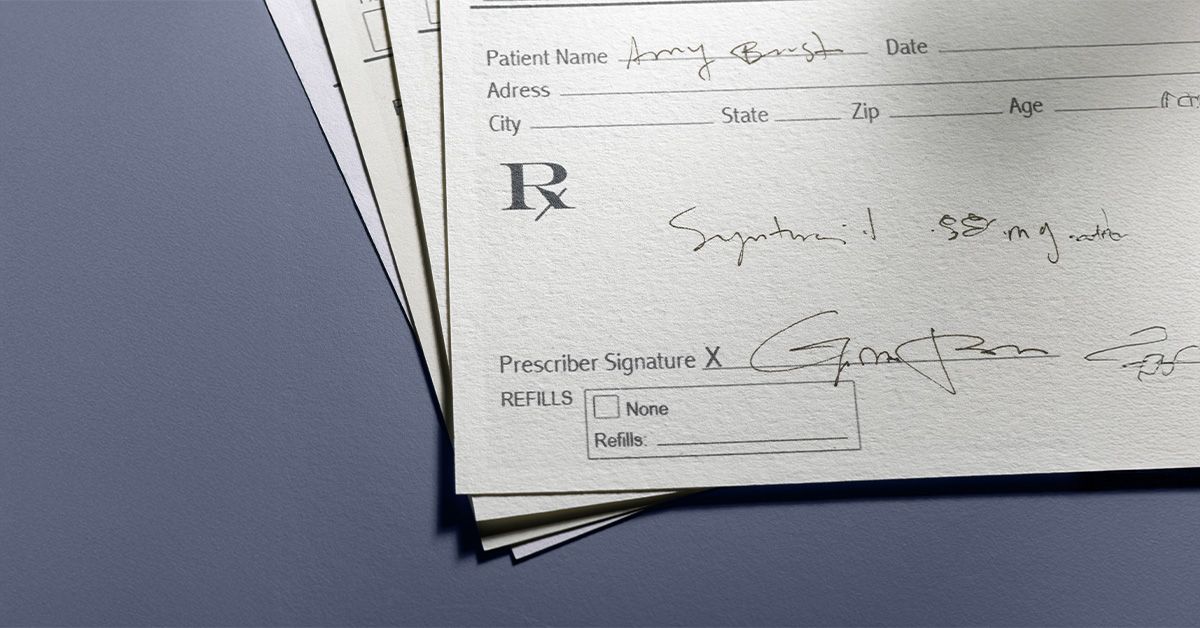Hey there! If you're reading this, chances are you're either close to that magical five-year mark as a green card holder or you're helping someone who is. Either way, let's chat about something that can make or break your Medicare journey the 5-Year Residency Rule.
Think of this rule as your golden ticket to Medicare coverage. Without it, you might find yourself standing outside the gates, wondering why your application didn't go through. But don't worry I'm here to walk you through everything you need to know, like we're having coffee and figuring this out together.
The Basics Explained
So what exactly is this 5-Year Residency Rule? Well, imagine Medicare as an exclusive club that wants to make sure you're truly committed to calling America home. For non-U.S. citizens, this means proving you've been a lawful permanent resident that's green card territory for at least five continuous years.
The clock starts ticking from the moment you officially become a lawful permanent resident, not necessarily when you first stepped onto U.S. soil. It's like the difference between visiting a friend versus actually moving in there's a commitment level that Medicare needs to see.
Now here's where it gets interesting those five years don't have to be perfect, but they do need to be continuous. Think of it like keeping a campfire burning short trips (up to six months) won't put it out, but longer absences might leave you starting from scratch.
Who Does This Apply To?
This residency requirement is specifically designed for non-citizens who are applying for Medicare based on their permanent resident status. If you're a green card holder planning to turn 65 or qualify through disability, this rule is your roadmap.
Let me paint you a picture of who this affects:
| Qualifies Under This Rule | Does Not Qualify |
|---|---|
| Lawful permanent residents (green card holders) | Undocumented individuals |
| New immigrants approaching Medicare age | Those with interrupted residency |
| Non-citizens without automatic qualification | Recent green card recipients with less than 5 years |
The beauty here is that if you've been steadily building your life in the U.S. and have those five years under your belt, you're essentially proving that healthcare coverage is a natural next step in your American journey.
When Rules Don't Apply
Here's where things get really interesting and honestly, it's some of the best news I get to share. There are several ways you might be able to skip this five-year waiting period entirely.
For instance, if you're receiving Social Security Disability Insurance (SSDI) benefits, you're basically fast-tracked into Medicare eligibility regardless of how long you've been in the country. It's like having a VIP pass that gets you through any line.
I remember working with this amazing woman from Ecuador who had only been in the U.S. for three years. She'd been working here steadily, paid into Social Security, and after qualifying for SSDI benefits, she was enrolled in Medicare immediately. No waiting, no stress just smooth sailing. It reminded me that sometimes life throws you curveballs, but there are systems in place to catch you when you fall.
Special Circumstances
Let's talk about some of the exceptional situations where the 5-Year Residency Rule might not be your only path to Medicare:
Disability-Based Enrollment is probably the most common way around the waiting period. Whether you're a green card holder with a solid work history or someone who's been receiving SSDI for 24 months or more, you might qualify for Medicare even if those five years haven't elapsed yet.
Family Connections also play a role here. If you're married to someone (or were married for at least ten years) who has sufficient work credits, you might be able to piggyback onto their Medicare eligibility. It's like being part of a team where everyone looks out for each other.
And here's something that often surprises people if you're dealing with end-stage renal disease, you can qualify for Medicare regardless of your residency status. Health challenges don't discriminate, and neither should access to care.
Document Everything
When it comes time to prove your residency, you'll want to gather your paper trail like you're preparing for the most important presentation of your life. This isn't about bureaucracy being difficult it's about making sure the system works fairly for everyone involved.
Your green card is obviously crucial, but don't overlook other documentation that can support your case. Tax returns showing consistent presence in the U.S., utility bills with your name and address, lease agreements, employment records these are all pieces of your American puzzle.
I've seen applications sail through smoothly when people were thorough with their paperwork, and I've watched others get delayed because they didn't have the right documents ready. Think of it like preparing for a job interview the more prepared you are, the more confident you'll feel.
Real-Life Scenarios
Let me share a couple of stories that might help you understand how this plays out in real life.
Take Maria she moved to the U.S. six years ago and got her green card right away. As she approached 65, she gathered all her documents, filed her application, and was approved without any hiccups. She had been patient, prepared, and respected the process. Her reward? Smooth entry into Medicare coverage just when she needed it most.
Then there's Tom, who tried to apply after only three years in the country. His heart was in the right place he wanted to be proactive about his healthcare but he learned the hard way that timing really is everything. His application was denied, but he used that setback as motivation to get organized for his real application down the road.
Both Maria and Tom taught me something valuable: sometimes the best way forward is patience paired with preparation.
What If You Apply Too Early?
This is where things can get a bit tricky and honestly, it's one of my biggest heartbreaks to see happen. Applying before you meet the requirements can lead to rejected applications, potential penalties, and worst of all, gaps in your healthcare coverage when you need it most.
Think of it like trying to start a car before the engine is warm it might sputter, cough, and fail to get you where you want to go. The good news? Once you understand what's needed, you can avoid this entirely.
Let me give you a quick checklist that I always recommend:
- [ ] Green card held for over 5 continuous years
- [ ] Social Security work credits or survivor/spousal benefits secured
- [ ] Age 65 milestone approaching or SSDI qualification met
When all these boxes are checked, you're not just ready you're unstoppable.
Understanding Costs
Let's be real about costs, because I know this is on everyone's mind. As a green card holder, your Medicare expenses might look slightly different than someone who spent their entire career in the U.S. payroll system.
| Service | Cost for New Immigrants | Cost for U.S. Citizens |
|---|---|---|
| Part A (hospital) | Up to $506/month premium | Usually FREE |
| Part B (medical) | Varies by income | ~$164.90/month (2023) |
While initial costs might seem higher, remember that you're investing in comprehensive healthcare coverage that will serve you for years to come. Plus, once you're enrolled, you have access to the same benefits, supplements, and advantage plans as everyone else.
Getting Expert Help
Navigating Medicare can feel overwhelming, especially when you're also managing the complexities of immigration status. Don't hesitate to reach out for professional support. The Social Security Administration representatives are there to help, and local SHIP (State Health Insurance Assistance Program) offices offer free, unbiased guidance.
I always tell people: asking for help isn't a sign of weakness it's a smart strategy. These systems were designed to support you, and there are real human beings ready to walk alongside you through this process.
Just make sure you're getting information from official sources. The official Medicare website and Social Security resources are gold standards for reliable information. Avoid those ads promising "fast-track enrollment" they're usually more trouble than they're worth.
Timing Really Is Everything
You know what I've learned after years of helping people navigate Medicare? Timing isn't just important it's everything. Being a green card holder gives you incredible opportunities, but rushing into Medicare enrollment before you meet the requirements can create unnecessary stress and setbacks.
If you're within six months of that five-year milestone, now is the time to start preparing. Gather your paperwork, talk to Social Security representatives, and mentally prepare for that big Medicare milestone. Think of it like preparing for a celebration you want everything to come together perfectly when the moment arrives.
Thousands of immigrants have successfully navigated this process, and you absolutely can too. It's not about jumping through hoops it's about demonstrating your commitment to the country that's now committed to your healthcare needs.
Your Medicare Journey Starts Now
As we wrap this up, I want you to remember something important: this 5-Year Residency Rule isn't designed to keep you out it's designed to ensure that Medicare serves those who've made America their true home.
Your journey to Medicare eligibility is part of your larger American story. Whether you've been here five years, ten years, or longer, each day you've contributed to this community has been building toward this moment.
So set that calendar reminder for one month before your five-year anniversary. Save this information, bookmark the official resources, and remember that you're not alone in this process. Thousands have walked this path before you, and many more will follow in your footsteps.
You've got this, and I'm cheering you on every step of the way. When that Medicare card arrives, it won't just be healthcare coverage it'll be recognition that you've truly become part of the American fabric.
That's worth waiting for.
FAQs
What is the Medicare 5-year residency rule?
The Medicare residency rule requires non-citizens to have been lawful permanent residents (green card holders) for at least five continuous years to qualify for Medicare benefits.
Can I get Medicare without meeting the 5-year rule?
Yes, if you qualify for SSDI benefits, have end-stage renal disease, or are married to someone with sufficient work credits, you may be eligible for Medicare earlier.
Do short trips outside the U.S. affect my residency count?
Trips up to 6 months generally don’t break continuity, but longer absences may reset your 5-year residency clock for Medicare purposes.
What documents prove my residency for Medicare?
Key documents include your green card, tax returns, utility bills, lease agreements, and employment records that show continuous U.S. residence.
What happens if I apply for Medicare too early?
If you apply before meeting the 5-year requirement, your application will likely be denied, which could delay your coverage when you actually qualify.
Disclaimer: This article is for informational purposes only and does not constitute medical advice. Always consult with a healthcare professional before starting any new treatment regimen.
Related Coverage
Blood pressure drawings use visuals to demonstrate physical concepts behind key measurements. Learn how these medical illustrations help diagnose issues and empower patient self-care....
Medicare drug costs in 2025 are changing with a $2,000 out-of-pocket cap. See how much you’ll pay and how to save on prescriptions....
Help your parents enroll in Medicare with ease. Learn how to navigate enrollment periods, required documents, and coverage options....
What happens physically and mentally leading up to death and just after, according to scientific research. Covers brain activity, reflexes, the transition, and theories about consciousness....
Learn how to get and use your Medicare OTC card for free health and wellness items....
Death's inevitability contains much that remains unknown, yet insights from research provide wisdom on how we might approach our remaining days with more purpose and presence....
Embrace the power of superfoods and elevate your conscious lifestyle. Discover 15 nutrient-dense powerhouses that offer a wealth of benefits for your body, mind, and spirit....
Compare Medicare Plan G vs N to get lower premiums, fewer copays, and protection from excess charges, you can pick the best fit....
Explore the 10 things your doctor may not tell you about the dying process, shedding light on the scientific, emotional, and spiritual aspects of mortality....
Embrace the power of superfoods and elevate your conscious lifestyle. Discover 15 nutrient-dense powerhouses that offer a wealth of benefits for your body, mind, and spirit....







